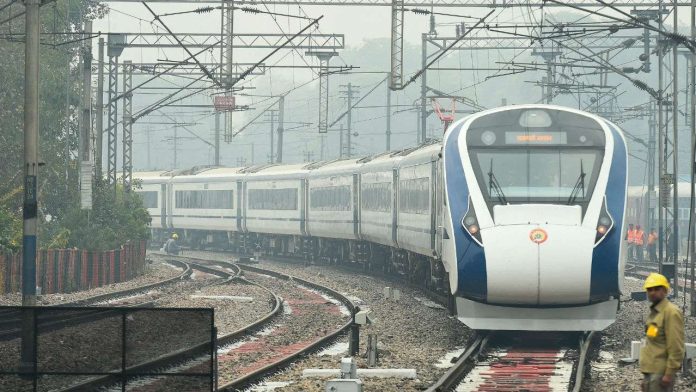Snapshot
The new policy based on impetus to make-in-India aims to enhance safety and speed on the railway systems through the induction of latest proven technology in track inspection monitoring machines and other track components in the network.
Doing away with the cumbersome and prolonged process involved in approval of new technology in the railway systems, Indian Railways is framing the cross approval policy for faster induction of advanced methods adopted worldwide.
The new policy based on impetus to make-in-India aims to enhance safety and speed on the railway systems through the induction of latest proven technology in track inspection monitoring machines and other track components in the network.
At present, introduction of any new track maintenance machine and technology is a very cumbersome and long drawn process which may not result in successful adoption after trial.
Currently, the proposals are being submitted to Research Designs and Standards Organization (RDSO) which are scrutinized and then clarification and modifications sought from the proposing agencies. After meeting the requirement, a proposal for trial is submitted to the Railway Board for approval of trials.
Trials are considered on a number of zonal railways having distinct traffic patterns, weather conditions and maintenance culture.
Based on trials over a period of time extending more than three years, a product is approved. Furthermore, introduction into the system takes years as specifications are to be drawn, tenders invited and agencies fixed.
During this prolonged period, at times, many new technologies come into the arena and in some cases, technology even becomes obsolete.
Besides, it requires a large amount of manpower over such a long period both from the Railways as well as developers.
According to the Railways, considering rapid changes and upgradation envisaged on Indian Railways, it is proposed that new technology, track inspection machines, track components, and fittings, which are developed worldwide and adopted on other advanced railway systems, needs to be inducted following cross approval policy and therefore, the cross approval policy has been framed.
Indian Railways has set a target of carrying 2,024 million tonnes of freight by 2024 and 3,167 MT by the year 2031 as per the National Rail Plan.
While train speeds are being increased from 110 kmph to 130 kmph and further to 160 kmph, it is also being proposed to introduce semi-high speed passenger trains at 200 kmph in times to come.
Axle loads have increased from 20.6 tonnes to 22.9 tonnes and now 25 tonnes. It is further proposed to be increased to 32 tonnes.
“In light of the existing scenario, it is absolutely essential to have a highly reliable, robust track infrastructure with complete mechanized inspection, monitoring and maintenance. The track infrastructure should require minimum maintenance effort due to reduction in availability of maintenance window,” a senior Railway ministry official said.
Considering such a horizon, the Railways have to prove the rails, fastening systems and induct versatile high output track machines for inspection, monitoring and maintenance of tracks.
The technology should be in use on advanced railway systems for more than 5 years from the date of application.
According to the Railways, cross approval should have been given green signal for regular adoption on the rail system.


